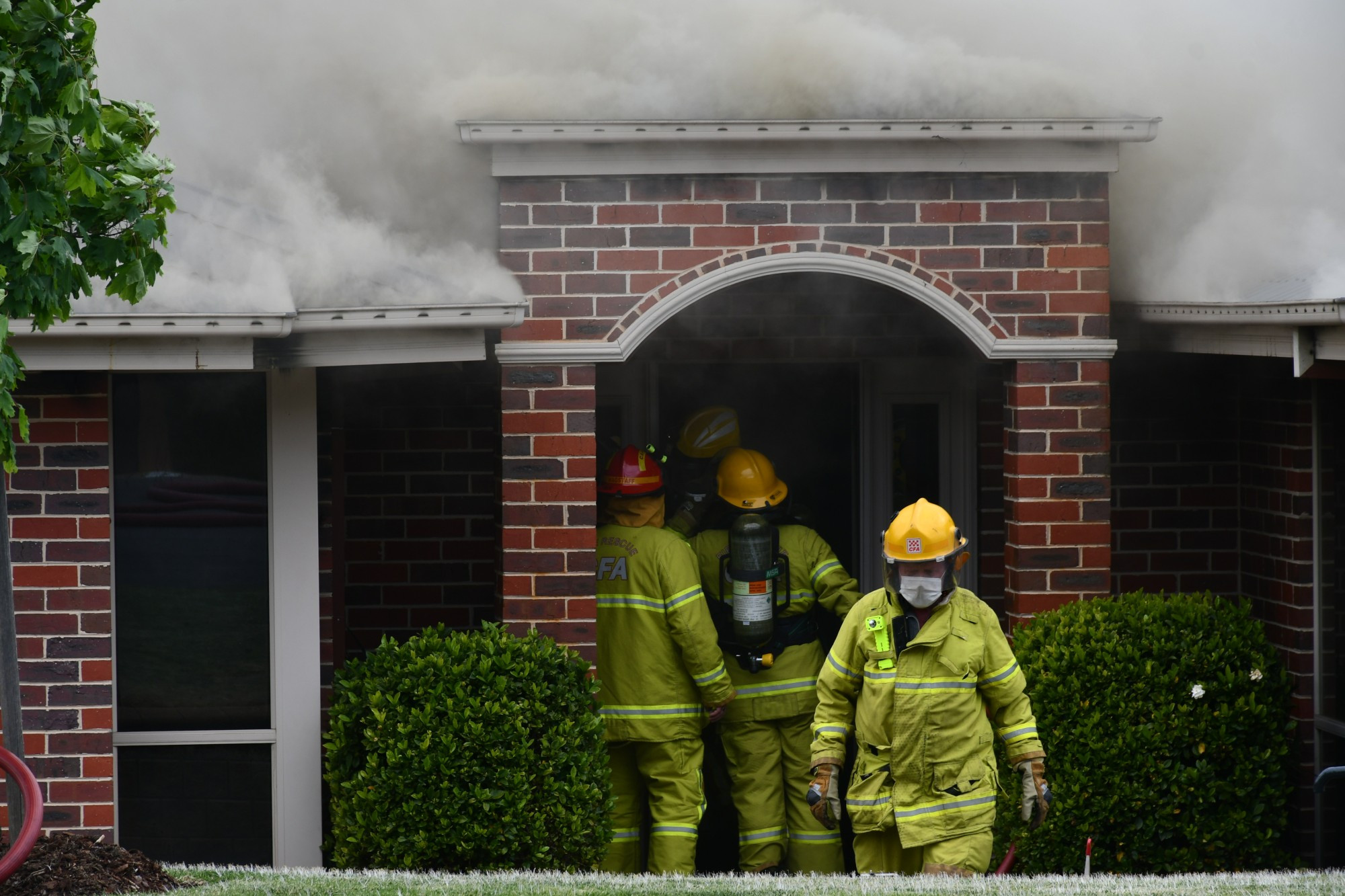General News
14 July, 2022
Training to help residents prevent and detect fires
A new learning module designed to support older residents and those with disabilities to plan for fires in the home has been launched, with local CFA Group Officer Peter Higgins urging all residents to safeguard themselves and their properties...

A new learning module designed to support older residents and those with disabilities to plan for fires in the home has been launched, with local CFA Group Officer Peter Higgins urging all residents to safeguard themselves and their properties against fire.
The new module, Prevent, Detect, Escape — Home Fire Safety for people at higher risk, is the first of its kind in the country and has been launched by the CFA and Fire Rescue Victoria for the benefit of people at increased fire risk.
According to the CFA, on average 18 people die in residential house fires each year in Victoria and individuals at greater risk are those who may have difficulty identifying that a fire has started, or if they’re slower or unable to escape a fire in their home.
Mr Higgins said structure fires are more common in the local area than residents may realise and are often the result of simple mistakes.
“Structure fires are more common than people think, a fire can be as simple as someone forgetting they’ve got oil on the stove and it catches fire,” he said.
“A lot of fires take place and aren’t reported, people can be lucky enough to avoid any damage or have been able to get the fire out themselves.
“It doesn’t take much for small incidents like that to become much larger incidents and that’s why a fire plan is a good idea.”
The new module, which is accessible to everyone and takes around 40 minutes to complete, covers three key topics including the prevention and detection of fires in the home, as well as being able to escape them.
Mr Higgins said simple steps like ensuring smoke detectors are working and having fireplaces and gas heaters checked regularly can go a long way to reducing the risk of fire in the home.
“It’s important people are getting their fireplaces checked and cleaned regularly by a qualified person and the same goes for gas heaters,” he said.
“I know it’s easy to just turn it off and forget about it for half a year until winter comes around again, but carbon monoxide is known as the silent killer for a reason and heaters should be checked.
“You can also implement things in your home today, like getting a fire blanket from the supermarket for $10 that could save you $250,000 worth of pain if your house goes up.”
The learning module also covers the importance of having and using fire plans, which Mr Higgins said you “can’t beat” in the event of a fire.
“Having and implementing a fire plan is a good thing and most people will never use a fire plan but you can’t beat having one if there is ever a house fire,” he said.
“A lot of elderly people don’t have fire plans and don’t necessarily think they need one because a house fire isn’t something that would happen to them.
“If you’re living at home alone it’s a good idea to let your neighbour know what your fire plan is because in the event of a fire, if you’re not where you told your neighbour you would be they’ll know something’s wrong.”
Mr Higgins said it was also important for residents who were unsure or uncertain of anything regarding fire safety to ask CFA members.
“Don’t be afraid to ring your local fire brigade or local captain for information,” he said.
“There are no silly questions, the question you want to ask is the question 10 other people are afraid to ask in a lot of cases.
“I also want to remind people that Triple Zero is there to help in an emergency, you’re not going to get into trouble if you need help.”
CFA and FRV worked with a wide range of stakeholders on the development of the module, including people with lived experience of disability, carers, support workers, and service provider managers or coordinators.
The Prevent, Detect, Escape — Home Fire Safety for people at higher risk learning module can be completed online at cfa.vic.gov.au/atrisk or frv.vic.gov.au/atrisk.